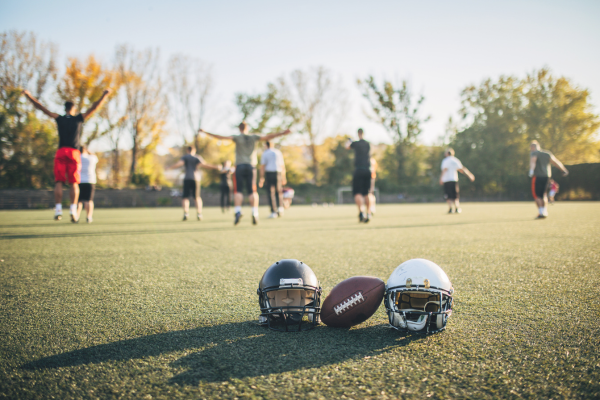
Sonja Stills hearkened back to her time, as she calls it, in the mental health trenches in college athletics. While working as the Coordinator of Athletic Academic Support at Hampton University, one of her track and field student-athletes tragically lost her mother. The father came to Stills’ office to deliver the news in person, where they processed the grief together.
“You’re interacting with the students, and you see the stresses,” Stills said, having worked at the historically Black private school in Virginia from 1998-2002. “[It’s about] helping those students get the tools they need to be able to navigate those stressful times that occur during their academic and athletic career.”
Stills got her undergraduate degree in Human Services Counseling from Old Dominion, then a Masters in College Student Work Personnel Counseling from Hampton. The last 20 years of her professional career have been spent in various roles within the Mid-Eastern Athletic Conference.
Stills worked her way up to become the MEAC’s first female commissioner on Jan. 1, 2022. Stills pulls on her firsthand experiences to inform her mental health advocacy efforts — one of her top priorities.
In Stills’ first month, she designated Dr. Harry Stafford as the conference’s Chief Medical Officer, a newly-formed position.
Stafford previously served as chair of the MEAC Health and Medical Advisory Committee, where he was a linchpin for the conference navigating the coronavirus pandemic. At the start, he headed a committee of trainers and doctors who met weekly
to set guidelines, then adjust policies in the gradual return back to hold athletic events.
“He really took us through COVID,” Stills said. “He was the best person I could say, ‘Hey, I want you to continue your actions. … But I also need you to include mental health as a part of your responsibilities.’ And, of course, he was all in.”
Stafford moderated a Zoom symposium on April 25 featuring Dr. Emmett Gill, founder of Athlete Talk, LLC; professional football player and sports performance coach T.J. Graham; speed and strength coach Lisa Barber; and Dr. Daniel Mollenthiel, who specializes in sport and performance psychology.
The symposium wrapped with an open conversation incorporating attendees, of which Stafford shared a few sticking points.
They posed questions about unpacking baggage. What kind of mental health challenges do student-athletes bring to college? Another inquiry addressed social media. In the age of TikTok and Instagram, where users can be sucked in for hours at a time, how do you get your day started to address other responsibilities? And how do student-athletes decompress away from their sport?
“It was a fantastic symposium,” Stafford said. “We had well over 100 student-athletes who participated and more that wanted to get in.”
There’s a personal tie to Stafford’s work, similar to Stills.
He was a thrower on the University of North Carolina track and field team, where he earned his undergraduate degree. The Tar Heels had nominal resources available, but he said he wasn’t privy to his mental health.
That is, until the recent symposium — particularly the portion on baggage — helped him acknowledge some of his own experiences.
Much of the discourse pulled from those conversations with student-athletes will be recast toward building out similar meetings with administrators and coaches from all eight member institutions, who will soon be presented with what Stafford calls, the “Coaches Mental Health Playbook.”
The handbook's purpose would be to build a practical guide on addressing mental health — something Stafford says MEAC coaches are eager for.
The MEAC held a recent meeting in Orlando with faculty, athletic directors and presidents. According to Morgan State vice president and athletic director Dena Freeman-Patton, part of that session included mental health discourse about student-athletes. It also peeled back another layer, ensuring the administrators, who pour their work into helping student-athletes, care for themselves properly.
Freeman-Patton shared that Morgan State’s Office of Student Affairs recently organized optional free mental health first aid training for coaches, staffers, and faculty. She estimated about a third of the group underwent the first round of training. They hope to initiate every staffer in the athletics department eventually.
“I have had some coaches talk about concerns they may not feel [confident in], ‘What’s next?’ ‘Where do I send them?’ ‘How do I handle this?’” said Freeman-Patton, who was appointed in May 2022, coming from a similar role at California State University, Dominguez Hills.
To address those concerns in the short term, Morgan State embedded counselors to work specifically with student-athletes. The Bears are also in the early stages of a mental health council. That would be more student-athlete led with proper support systems.
Freeman-Patton said she was surprised by the interest from student-athletes about starting such a space for dialogue, “being open to say ‘We want to talk about it and we want to help our fellow student-athletes.’”
Stills’ and Stafford’s effort aims to educate on identifying potential challenges, pointing those affected to proper resources and — perhaps a lesser discussed parcel of a student athletes’ mental health journey — reintegrating into their athletic environment.
“We’re really pushing for a student-athlete injury group too,” Stafford said. “Because one of the things we’re seeing is when you take sport away from student-athletes, something they’ve been doing their whole life, their world is kind of rocked.”
The MEAC has also taken steps to provide safe spaces for, not just athletes, but coaches and administrators, too, having partnered with Gateway Services. Creating a space for student-athletes to decompress or speak with a trained professional while at their sport’s championships began with the MEAC basketball tournament in 2022.
Stills hopes to broaden those resources to each sport’s conference tournament.
“For us as a conference, we have to be the leaders,” she said. “We must be able to light that match to help our institutions and where we need to go.”
- The Baltimore Sun, June 15, 2023